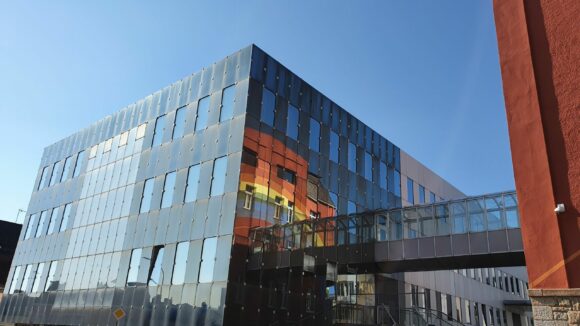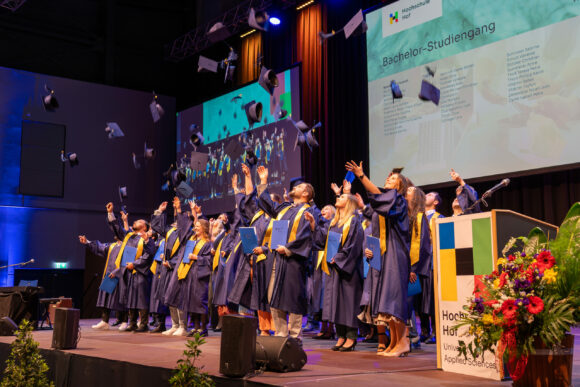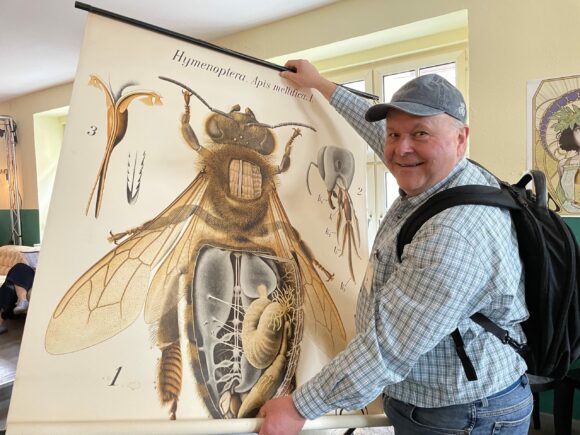Bavaria’s newest university location was launched in Kronach, Upper Franconia. The Lucas-Cranach-Campus starts into the future with the master’s degree program “Autonomous Driving”. Another building block for the high-tech cluster in the Franconian Forest – and a smart move against demographic change.
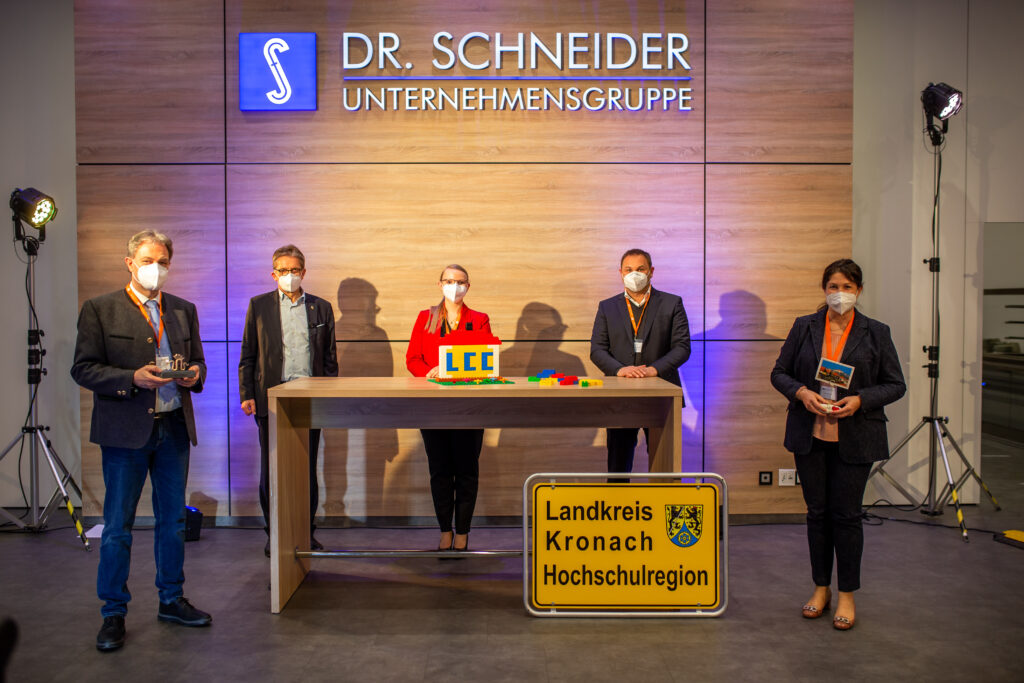
It’s all about megatrends like digitization, artificial intelligence, new forms of mobility and everything that functions “autonomously” in some way. Topics such as sensor technology, connectivity, learning systems and the new 5G communication standard pop up. Are these topics only thought up, researched and lived in metropolises or hip “valleys”? Far from it. In the north of Bavaria, in the Upper Franconian town of Kronach, there are a whole series of innovative companies, even global market leaders in forward-looking high technology. And now there is also a university location there that deals with promising topics such as autonomous mobility and holistic quality-of-life management
Successful online launch
Last Friday, the Lucas Cranach Campus (LCC) in Kronach was launched with the kick-off of the first semester of the master’s program in autonomous driving: This is a university platform that is jointly operated by the Coburg and Hof universities with academic offerings. The course of study in autonomous driving is offered by Coburg University of Applied Sciences. In the winter semester of 2021/2022, the course at Hof University of Innovative healthcare hof University of Applied Sciences will start teaching in Kronach.
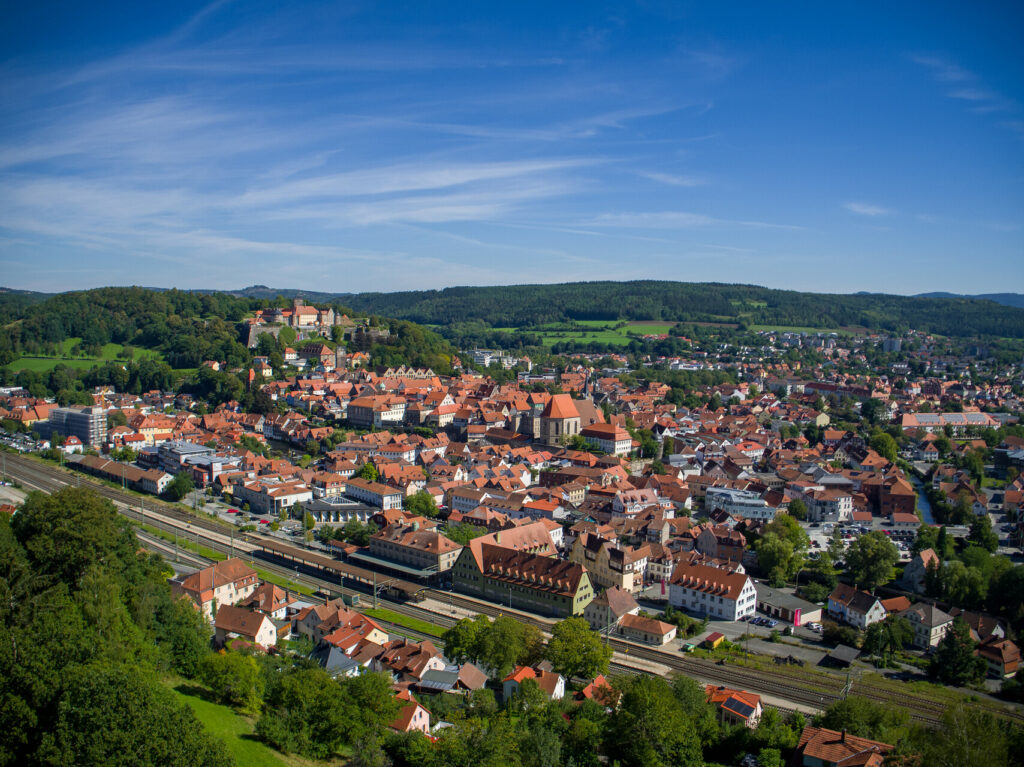
Most famous son of the city as namesake
The Upper Franconian fortified town of Kronach is well known as the birthplace of painter Lucas Cranach the Elder. A picturesque town in the Franconian Forest, characterized by medieval architecture: a lot of nature, art and culture, a lot of history, showcase of the Genussregion Upper Franconia, a town with a lively pub culture and a high recreational value
History and the future merge at the Lucas Cranach Campus. In the flair of this beautiful historic city, the future is now being shaped!”
Bernd Sibler, Bavarian Minister of Science
The opening took place – under the sign of Corona – as a hybrid event partly with studio guests, partly with video broadcasts. According to Sibler, the LCC represents the Bavarian state government’s declared intention to bring universities into the region as part of a “knowledge-based regional strategy.”
Close cooperation
The LCC is a prime example of close shoulder-to-shoulder cooperation between universities, politics, regional business and the general public. “A real ‘we’ project, inspired by the ‘Cranach spirit’,” as MdL Jürgen Baumgärtner (CSU), managing director of the Lucas-Cranach-Campus Kommunalunternehmen, put it during the opening ceremony. District Administrator Klaus Löffler adds enthusiastically
An entire region has rallied behind the theme. Our thanks go to the people of the region for their great trust in this issue.
Klaus Löffler, District Administrator Kronach
More than ten years ago, a number of forward thinkers, including the then president of Coburg University of Applied Sciences, Professor Michael Pötzl, and the chairman of Kronach’s industry and commerce committee, Hans Rebhan, together with his then committee managing director and current mayor, Jens Korn, conceived the idea of the “University City of Kronach”. After the master’s degree program in Future Design at Coburg University of Applied Sciences was successfully launched in Kronach in 2016, Bavaria’s Minister President Markus Söder gave the “go” for the LCC two years later.
First degree program launched
The basic idea of the LCC includes the research-based transfer of ideas, knowledge and technology between qualified research and teaching on the one hand and innovative companies in the region on the other. The automotive supplier Valeo, which is driving forward the topic of autonomous driving at the Kronach-Neuses site, plays a key role in the Autonomous Driving degree program. At the new university location, Valeo intends to bring the results of joint research projects onto the road in the future. To this end, the 5G communication standard has already been installed at two regional hotspots. But ultimately, according to site manager Jörg Schrepfer, the company is also hoping that the LCC will provide it with appropriate young specialists.
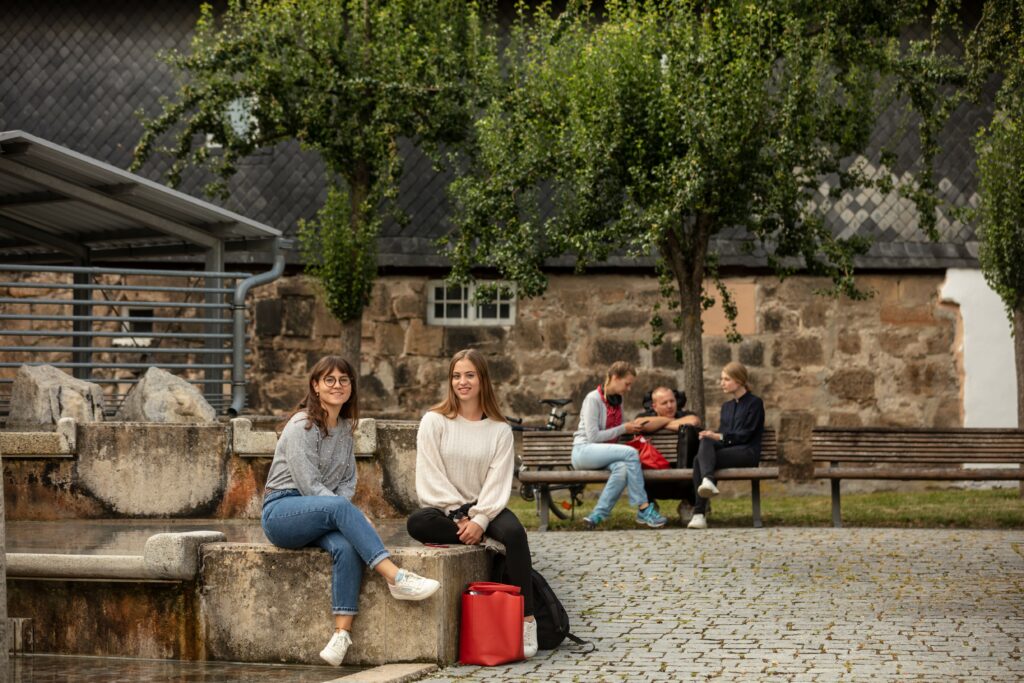
Former vacancy will be used
Students should feel at home at the new LCC. That’s why the people of Kronach didn’t build a campus on a “greenfield” site, but rather use existing buildings or vacant space in the middle of the pretty three-river town. “Our entire city will become a living campus,” is the credo of Jürgen Baumgärtner, who expects far-reaching growth impulses for the region. Initially, 280 students are to come to the fortress city in the next few years with the two degree coursesAutonomous Driving and Innovative Healthcare . The range of courses is to be successively expanded to include topics of the future. To further strengthen the new university location in Kronach, there are also plans to relocate 600 study places from the Herrsching University of Finance to Kronach.
“Today we have reached a milestone,” emphasizes Hans Rebhan, Vice President of the Chamber of Industry and Commerce for Upper Franconia Bayreuth as well as designated board member of the LCC Foundation: “There was a plan behind it, which we have been working on for eleven years,” says Rebhan. The LCC could provide important impetus to counteract demographic change in the long term, to revitalize the city and district, and to strengthen the innovative power of local companies through versatile forms of knowledge transfer.
Well-known guests joined in
During the virtual kick-off event for the launch of the Lucas Cranach Campus, representatives from science, politics and business gathered on site and via video link. Among the talk guests of moderator Dr. Markus Neufeld on site in Kronach were MdL Jürgen Baumgärtner, managing director of the Lucas-Cranach-Campus Kommunalunternehmen; Angela Hofmann, first mayor of the city of Kronach; Klaus Löffler, district administrator of the district of Kronach; Hans Rebhan, vice president of the Chamber of Industry and Commerce for Upper Franconia Bayreuth as well as Annemarie Treuner, entrepreneur and graduate of the master program ZukunftsDesign. Bernd Sibler, Bavarian State Minister for Science and the Arts; Heidrun Piwernetz, District President of Upper Franconia; Prof. Dr. Christiane Fritze, President of Coburg University of Applied Sciences; and Professor Dr. Dr. h.c. Jürgen Lehmann, President of Hof University of Applied Sciences, in addition to numerous representatives of the regional economy, delivered their greetings.
The online event was technically implemented by Coburg University’s innovation and networking platform Creapolis and broadcast live on social media channels.




